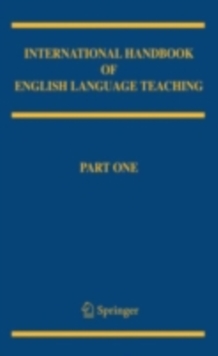
International Handbook of Educational Policy PDF
Edited by Nina Bascia, Alister Cumming, Amanda Datnow, Kenneth Leithwood, David Livingstone
Part of the Springer International Handbooks of Education series
Description
Nina Bascia, Alister Cumming, Amanda Datnow, Kenneth Leithwood and David Livingstone This Handbook presents contemporary and emergent trends in educational policy research, in over ?fty chapters written by nearly ninety leading researchers from a number of countries.
It is organized into ?ve broad sections which capture many of the current dominant educational policy foci and at the same time situate current understandings historically, in terms of both how they are conceptualized and in terms of past policy practice.
The chapters themselves are empirically grounded, providing illustrations of the conceptual implications c- tained within them as well as allowing for comparisons across them.
The se- re?exivity within chapters with respect to jurisdictional particularities and c- trasts allows readers to consider not only a range of approaches to policy analysis but also the ways in which policies and policy ideas play out in di?erent times and places.
The sections move from a focus on prevailing policy tendencies through increasingly critical and ''outsider'' perspectives on policy.
They address, in turn, the contemporary strategic emphasis on large-scale reform; substantive emphases at several levels - on leadership and governance, improving teacher quality and conceptualizing learning in various domains around the notion of literacies and concluding, ?nally, with a contrasting topic, workplace learning, which has had less policy attention and thus allows readers to consider both the advantages and disadvantages of learning and teaching under the bright gaze of policy.
Information
-
Download - Immediately Available
- Format:PDF
- Publisher:Springer Netherlands
- Publication Date:14/05/2008
- Category:
- ISBN:9781402032011
Information
-
Download - Immediately Available
- Format:PDF
- Publisher:Springer Netherlands
- Publication Date:14/05/2008
- Category:
- ISBN:9781402032011










